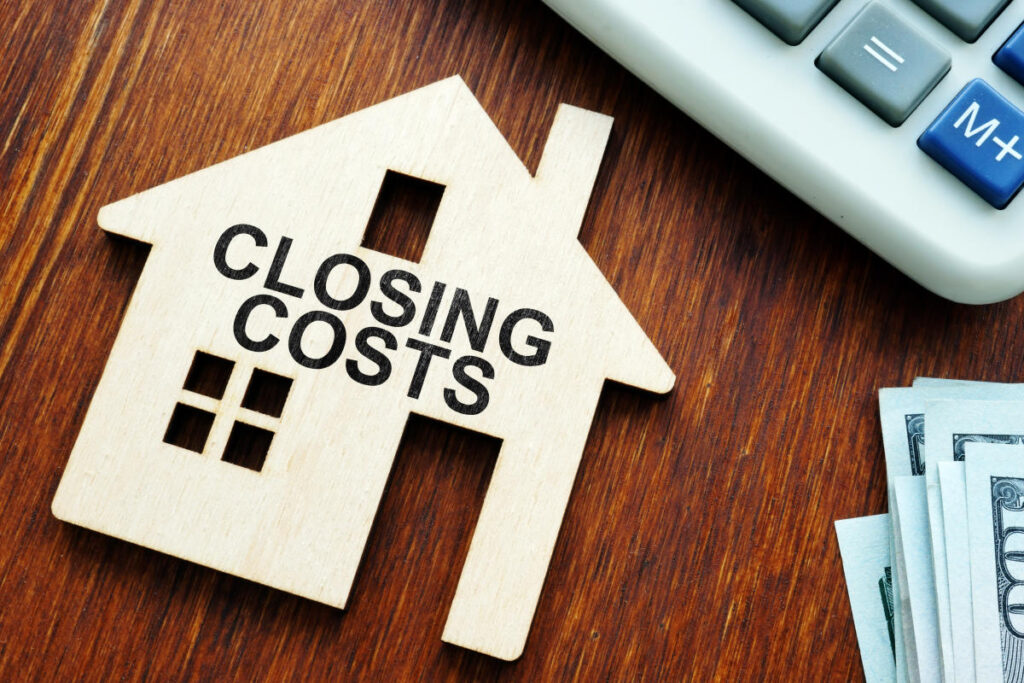When you’re finally ready to buy a house after saving for the down payment, a rude awakening may await you: the presence of closing costs. These fees, which you pay at the loan signing, are imposed by lenders and other third parties and have risen sharply in recent years. From 2021 to 2023, median closing costs increased by over 36%, according to the Consumer Financial Protection Bureau. This comprehensive guide breaks down the various types of closing costs you should anticipate, enabling you to budget more effectively as you navigate the home-buying process. Experienced homebuyers know that these costs are unavoidable and often significant, making it crucial to understand what charges you may face when concluding your home purchase.
At the forefront of your closing costs are lender fees, the most significant expenses that can vary widely among different lenders. Application fees are one of these charges, and while not all lenders impose them, they can range from a few hundred dollars to significantly more. If your application is rejected, you’ll still be responsible for this expense. In addition, a lender typically charges for pulling your credit report; these fees have shot up dramatically, with some lenders now charging as much as $100 to $150. The origination fee, typically 0.50% to 1% of your total loan amount, is one of the priciest costs and can sometimes be negotiated. Most lenders may combine several fees into a singular charge, which could muddy clarity. It is important to be proactive and shop around, comparing various lenders to find the best rates.
In addition to lender fees, there are several other costs associated with closing that you should be aware of. For instance, processing fees and underwriting fees can also add up quickly, with estimated costs ranging from several hundred dollars to potentially over $1,000 combined. Once you have a Loan Estimate from each lender, you will have clearer insight into which third-party fees are applicable to your transaction. While certain fees will be non-negotiable due to specific mortgage program guidelines, like those for FHA or VA loans, other fees can be selected from lists of approved vendors, which can help you save money. For instance, you might be able to shop around for an appraisal, inspection, or survey with varying quotes depending on your local area.
The appraisal is essential in determining whether the property value aligns with the purchase price, and its costs average around $500, usually non-negotiable. Home inspections, on the other hand, may cost between $300 and $500. Depending on your findings, you may decide to ask the seller to repair any issues discovered during the inspection or opt to walk away from the deal. Recordation fees, typically around $50 to $100, are expenses that arise when a county clerk’s office files your ownership transfer paperwork. Similarly, title searches and insurance are critical; these ensure that no defects in a property’s title exist that could jeopardize your ownership. While a title search can cost several hundred dollars, title insurance premiums depend on property value and are generally a requirement imposed by lenders.
Then there are taxes, escrow fees, and other costs that you should consider. If you live in a jurisdiction that levies a transfer tax, this expense will be added on top of your closing costs but varies significantly depending on your location. Escrow accounts, often required by lenders, will also contribute to closing costs, as these accounts allow for the collection of money for future homeowner’s insurance and property taxes. If you have a mortgage that requires premium payments such as private mortgage insurance (PMI) or a VA funding fee, expect those to be added to your list of closing costs as well. It’s essential to remember that initial escrow payments may be billed upfront at closing, which can further inflate your total expenses.
Understanding these various costs is crucial as they total together to create your total cash-to-close amount. Three key documents—the Loan Estimate, Closing Disclosure, and any associated paperwork—will provide you with all the necessary details leading up to your closing. The Loan Estimate is particularly useful for understanding which fees you can shop for and negotiate. It’s also wise to carefully review the Closing Disclosure, which outlines the final totals of all fees three days before your closing date, leaving you well-prepared. If you find yourself overwhelmed by closing costs, you may consider strategies for negotiations and explore options such as seller concessions, which could alleviate some of the financial pressures associated with your home purchase.
Closing costs typically range from 2% to 5% of the home’s purchase price. For instance, a $400,000 home could incur closing costs between $8,000 and $20,000. Notably, while many closing costs are non-negotiable, others, such as lender fees, inspection charges, and insurance can often be reduced with diligent shopping and negotiation. Enlisting a skilled real estate agent can further enhance your leverage when asking sellers for concessions or credits toward your closing costs.
Understanding and preparing for closing costs will help you avoid surprises on closing day, allowing for a less stressful home-buying experience. With the right knowledge and tools, you can enter your closing meeting with confidence and clarity, fully aware of the total costs you’ll incur and how to mitigate those expenses through different strategies and potential negotiations. Each cost plays a role in the greater home-buying process, making it clear how essential it is to do your research before arriving at the closing table.

